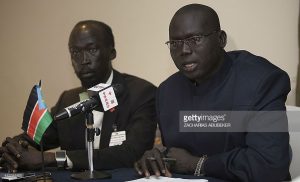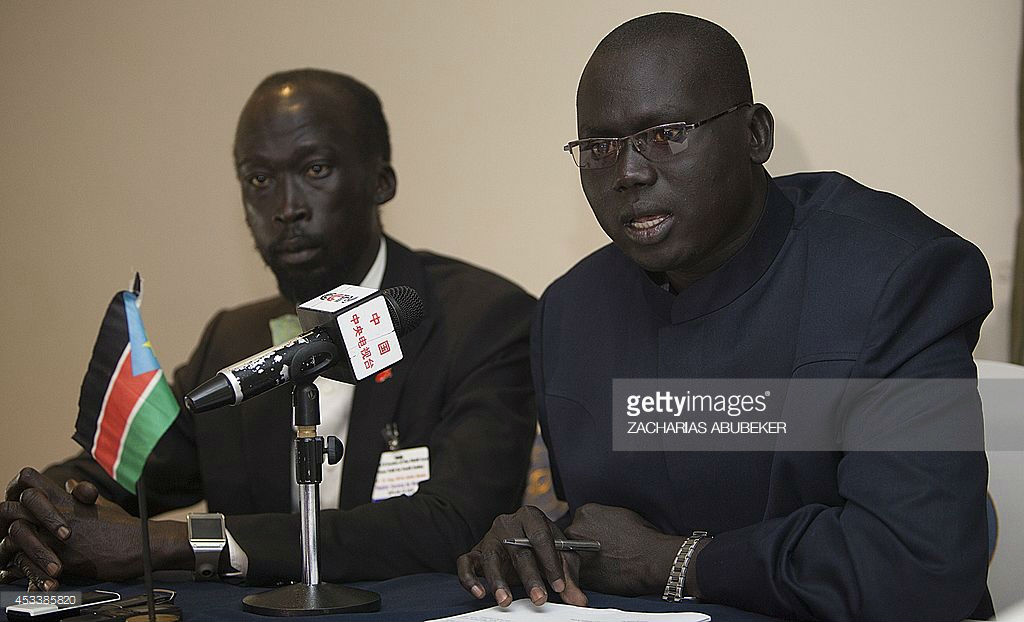
Addis Ababa, May 23, 2018 (SSNA) — South Sudanese rebels have rejected the Intergovernmental Authority on Development (IGAD) power-sharing proposal and described it as “an endorsement of the status quo.”
In a statement released Wednesday evening, the Sudan People’s Liberation Movement-In Opposition’s (SPLM-IO) Chairman for National Committee for Information and Public Relations, Mabior Garang Mabior, said the East African regional bloc proposed pact does not reflect the current situation in the country, saying distribution of positions will never solve the problem.
“The leadership of the SPLM/SPLA (IO) would like to inform our members and the people of South Sudan at large that we have categorically rejected the IGAD “A BRIDGING PROPOSAL”. The contention of the SPLM/SPLA (IO) is that the Agreement on the Resolution of the Conflict in South Sudan (ARCISS) collapsed in July 2016 and the concept of “Bridging” is not consistent with the current realities in South Sudan. This is the very reason the ARCISS is being revitalized,” Mabior said in the text.
“The IGAD “A BRIDGING PROPOSAL”, is an endorsement of the status quo which emerged in Juba after the collapse of the ARCISS. The IGAD Proposal further rewards the regime in Juba for their intransigence throughout the peace process and for their well-documented role in precipitating the collapse of the ARCISS in July 2016. The SPLM/SPLA (IO) does not believe that simply distributing positions will resolve the conflict, the SPLM/SPLA (IO) objective is to effect fundamental change in our country,” the document further explained.
Mabior explained that the armed opposition negotiating team deliberated on the IGAD’s proposal and that that decision, rejecting the deal, was submitted to the Chairperson of the IGAD Council of Ministers.
On Tuesday, IGAD tabled a new power-sharing deal. In the proposal, the East African regional bloc gives the government 55%, 25% to SPLM-IO, and 20% Former Detainees (FDs) and other opposition parties.

